Track Your Puppy’s Development
Use the information below to learn about what to expect as your Australian Labradoodle puppy grows, including the type of care they’ll need to thrive. Hidden Springs Labradoodles is here to guide you and your puppy on your journey together!
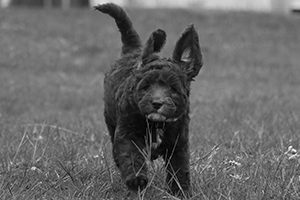
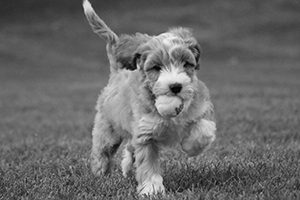

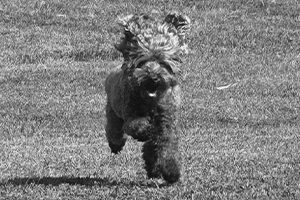
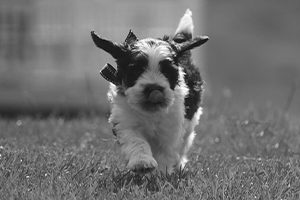

Neonatal Stage
(Birth to 12 days)
- Learning and Development: Puppies can't see or hear well, staying close to their mother and littermates. They start learning from their environment.
- Our Care: We provide a warm environment and handle the puppies gently and regularly to build their stress tolerance.
- What You Can Do: Look into enrolling your puppy in a Puppy Class within 12 weeks.
- Veterinarian Care: Puppies are checked by our vet at one to two days old for health screening and microchipping.
Transition Period
(13 to 20 days)
- New Abilities and Care: Puppies begin to see, hear, walk, and eat solid food. We enrich their environment with various stimuli and do not allow visitors to ensure the health and safety of our puppies.
- Veterinarian Care: Usually not needed if puppies are thriving.
Primary Socialization Period
(3 to 7 weeks)
- Learning and Development: Puppies develop their senses, learn from experiences, and interact with their littermates. Mother dogs start weaning.
- Our Care: We ensure a stimulating environment and begin crate training. One-on-one human interaction and exposure to various noises and surfaces are key.
- Veterinarian Care: Regular health checks and discussions on vaccination schedules with our vet.
Human Socialization Period
(Starts week 7)
- Critical Learning Phase: Puppies learn rapidly and are weaned from their mother.
- Our Care: We focus on socializing puppies with children and various environments. Basic command training is initiated.
- What You Can Do: Prepare your home for the puppy and continue socialization. Enroll in a puppy class after the puppy's second set of vaccines.
- Veterinarian Care: Positive vet visits are encouraged for socialization and health checks. Discuss dental care and nail clipping with the vet staff.
Fear Impact Period
(8 to 11 weeks)
- Sensitive Phase: Puppies may develop lasting fears from negative experiences.
- Your Role: Ensure positive, short training sessions. Avoid overwhelming situations.
- Veterinarian Care: Pleasant vet visits are crucial. Focus on handling exercises and fun interactions.
Juvenile Period
(Post-socialization to puberty)
- Growing and Exploring: Puppies clarify boundaries, experience physical growth, and begin sexual maturation.
- Your Role: Provide structured training and chew toys appropriate for teething.
- Veterinarian Care: Discuss rabies vaccination, heartworm prevention, and check for required stool samples.
Adolescent Period
(Starts with puberty)
- Testing Boundaries: Puppies may challenge rules and change behavior.
- Your Role: Maintain consistency and predictability in training and daily routines.
- Veterinarian Care: Discuss spaying/neutering and microchipping. Regular health checks are essential.
Second Fear Impact Period
(5 to 12 months)
- New Fears May Develop: Your dog might show apprehension towards new experiences.
- Your Role: Focus on building confidence through training and avoiding stressful situations.
- Veterinarian Care: Regular, fun visits to the vet for check-ups and handling exercises.
Maturity
(1 to 4 years)
- Reaching Social Maturity: Behavior patterns solidify.
- Your Role: Supervise and gradually test your dog's trustworthiness. Address any missed training or socialization opportunities.
- Veterinarian Care: Annual check-ups and possible health screenings like X-rays for hip dysplasia.
